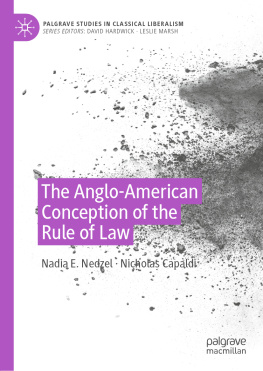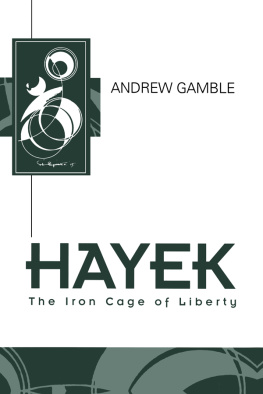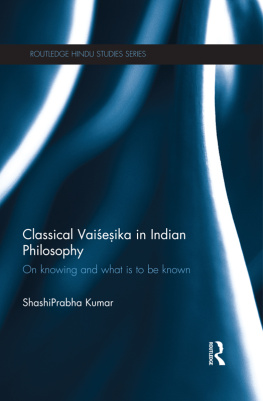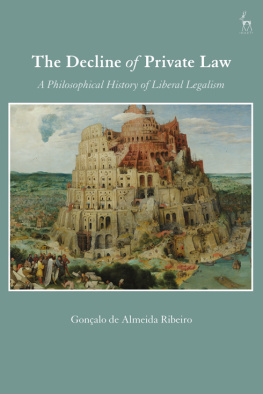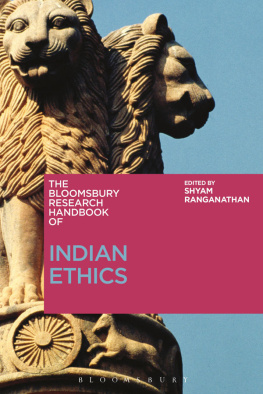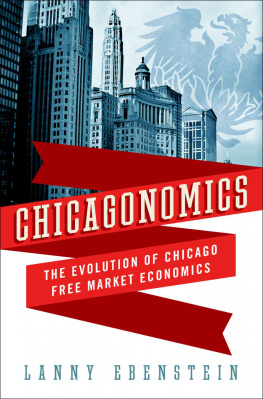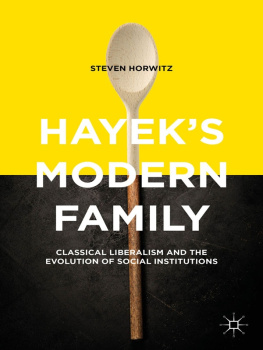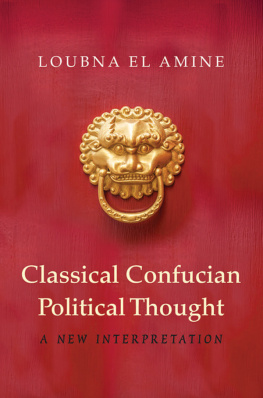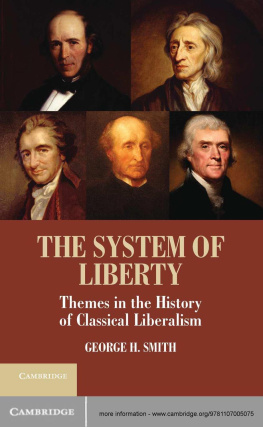Palgrave Studies in Classical Liberalism
Series Editors
David Hardwick
Vancouver, BC, Canada
Leslie Marsh
Department of Pathology and Laboratory Medicine, Faculty of Medicine, University of British Columbia, Vancouver, BC, Canada
This series offers a forum to writers concerned that the central presuppositions of the liberal tradition have been severely corroded, neglected, or misappropriated by overly rationalistic and constructivist approaches. The hardest-won achievement of the liberal tradition has been the wrestling of epistemic independence from overwhelming concentrations of power, monopolies and capricious zealotries. The very precondition of knowledge is the exploitation of the epistemic virtues accorded by societys situated and distributed manifold of spontaneous orders, the DNA of the modern civil condition. With the confluence of interest in situated and distributed liberalism emanating from the Scottish tradition, Austrian and behavioral economics, non-Cartesian philosophy and moral psychology, the editors are soliciting proposals that speak to this multidisciplinary constituency. Sole or joint authorship submissions are welcome as are edited collections, broadly theoretical or topical in nature.
More information about this series at http://www.palgrave.com/gp/series/15722
Nadia E. Nedzel and Nicholas Capaldi
The Anglo-American Conception of the Rule of Law
Nadia E. Nedzel
Southern University Law Center, Baton Rouge, LA, USA
Nicholas Capaldi
College of Business, Loyola University New Orleans, New Orleans, LA, USA
Palgrave Studies in Classical Liberalism
ISBN 978-3-030-26360-7 e-ISBN 978-3-030-26361-4
https://doi.org/10.1007/978-3-030-26361-4
The Editor(s) (if applicable) and The Author(s) 2019
This work is subject to copyright. All rights are solely and exclusively licensed by the Publisher, whether the whole or part of the material is concerned, specifically the rights of translation, reprinting, reuse of illustrations, recitation, broadcasting, reproduction on microfilms or in any other physical way, and transmission or information storage and retrieval, electronic adaptation, computer software, or by similar or dissimilar methodology now known or hereafter developed.
The use of general descriptive names, registered names, trademarks, service marks, etc. in this publication does not imply, even in the absence of a specific statement, that such names are exempt from the relevant protective laws and regulations and therefore free for general use.
The publisher, the authors and the editors are safe to assume that the advice and information in this book are believed to be true and accurate at the date of publication. Neither the publisher nor the authors or the editors give a warranty, expressed or implied, with respect to the material contained herein or for any errors or omissions that may have been made. The publisher remains neutral with regard to jurisdictional claims in published maps and institutional affiliations.
This Palgrave Macmillan imprint is published by the registered company Springer Nature Switzerland AG
The registered company address is: Gewerbestrasse 11, 6330 Cham, Switzerland
For
Diana, Meredith, Chantal, Michael, Anna, Sophie, Julia, Alex, and Marcel
Acknowledgements
We wish to thank all of the following organizations and individuals who helped to make possible the completion of this book.
Professor Nadia Nedzel specifically wants to thank the Southern University Law Center for providing a one-year sabbatical. The Institute for Economic Analysis in London hosted her as a visiting scholar in the fall of 2018. She offers special thanks to its director Jamie Whyte. The History of Political Economy Center at Duke University hosted her during the spring of 2019. While there, Bruce Caldwell and Kevin Hoover provided invaluable assistance and scholarly wisdom. As always, she is perennially grateful to Judge Carl E. Stewart of the Fifth Circuit for his inspiration and example. Professors James Viator and David Gruning of Loyola University New Orleans Law School were not only her teachers but also continue to serve as scholarly mentors. The Federalist Society provided several opportunities to present early versions of the manuscript.
Professor Nicholas Capaldi wishes to thank Loyola University New Orleans for providing a sabbatical.
Both Professors Nedzel and Capaldi extend a warm thank you to Liberty Fund for allowing us to direct several colloquia on the rule of law. We wish to thank the fellows and the innumerable scholars with whom we have interacted at such colloquia. We wish to acknowledge the special help we received from the librarians at the Hoover Institution at Stanford and the London School of Economics who gave us access to the archives and letters of Hayek and Oakeshott.
Finally, special thanks go to Eric Mack, Timothy Fuller, Jeffrey Ludwig, Alexei Marcoux, and Alberto Mingardi for reading and critiquing the manuscript.
Praise for The Anglo-American Conception of the Rule of Law
In their new book, Nadia E. Nedzel and Nicholas Capaldi offer a real tour de force of the history of the English legal tradition of the rule of law, which has been under attack since 19th century Positivism made inroads into jurisprudence. However, Nedzel and Capaldi trace the beginning of the attacks on Rule of Law to the 17th century, and link it with the Baconian Project and the later Enlightenment Project, which was bound to undermine civil association and, consequently, individual freedom. They begin their discussion with Ockham, Bacon, Coke, Hobbes, and others before concluding with Hayek and Oakeshottthe last great proponents of the English legal tradition. This is by far the most scholarly, comprehensive, insightful, and provocative discussion of the rule of law to date. This book is a hallmark of profound scholarship and sound philosophical analysis.
Zbigniew Janowski, Lecturer, Towson University
Contents
1. Why the Rule of Law
Introduction
The rule of law (and before them Dicey , Leoni , and Fuller ) because they opposed the rationalism and scientism that has been the basic intellectual orthodoxy since the nineteenth century. This opposition enabled them to resist the idea that reason or science can identify a substantive common end for society in the service of which all individuals must be directed and that law is the instrument that directs this service.
The mainstream of contemporary social scientific and legal thought has little room for the traditional understanding of the rule of law. Hayek and Oakeshott find such a place and articulate a morally significant picture of the rule of law precisely because they reject the rigidity of the rationalist , scientistic, positivist perspective. Their non-rationalist, inductive understanding of human life and human society underwrites this rule of law perspective according to which the role of law is to define the rules that enable individuals, who have their own ends and commitments, to live in peace and voluntary cooperation with their fellows.

